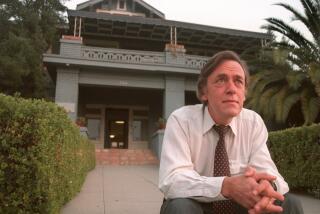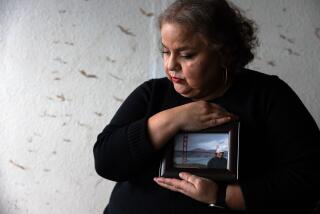Justices push Jerusalem passport case to lower court
WASHINGTON — The Supreme Court weighed into one of the thorniest issues in the Middle East conflict — who has sovereignty over Jerusalem — ruling that courts have the power to decide whether Congress can order that passports for U.S. citizens born there list “Israel” as their birthplace.
The justices, ruling 8 to 1 on Monday, passed the decision back to a lower court. So Menachem Binyamin Zivotofsky, now 9, will have to wait to find out what his passport will look like.
The U.S. has long taken the position that sovereignty over Jerusalem, which Israelis and Palestinians both claim as their capital, must be resolved in negotiations, so the government does not recognize Israeli sovereignty there. But in 2002, Congress passed a bill urging that the U.S. Embassy in Tel Aviv be relocated to Jerusalem and ordering that “Israel” should be listed as the birthplace for those born in the city who request it.
The George W. Bush and Obama administrations argued that the law was unconstitutional because it impinged on the president’s right to conduct foreign policy.
Bush said in a statement while he was signing the bill that he would not enforce the provision because it would “impermissibly interfere with the president’s constitutional authority to ... speak for the nation in international affairs and determine the terms on which recognition is given to foreign states.”
Zivotofsky was born at Shaare Zedek Medical Center in West Jerusalem shortly after the law was enacted. His parents, Ari and Naomi, argue that is it unfair to allow about 100,000 Americans born in cities that the U.S. recognizes as being under Israeli sovereignty to have their passports list Israel as their birthplace, but not the 50,000 or so Americans born in Jerusalem. The State Department listed his birthplace only as “Jerusalem.”
Monday’s ruling, written by Chief Justice John G. Roberts Jr., decided only the preliminary question of whether Zivotofsky had suffered enough of a concrete injury to make a case.
Only Justice Stephen G. Breyer dissented from the ruling that Zivotofsky could pursue the claim in court. He said that Zivotofsky’s interest in the case was only “ideological” and that there was “minimal need for judicial intervention.” The case carries a serious risk that it could “disrupt sound foreign policy decision-making,” he wrote.
Ultimately, the case probably will return to the high court. “I hope this gets resolved favorably so this boy can put Israel on his passport before his bar mitzvah four years from now,” said Nathan Lewin, his lawyer.
More to Read
Start your day right
Sign up for Essential California for news, features and recommendations from the L.A. Times and beyond in your inbox six days a week.
You may occasionally receive promotional content from the Los Angeles Times.







